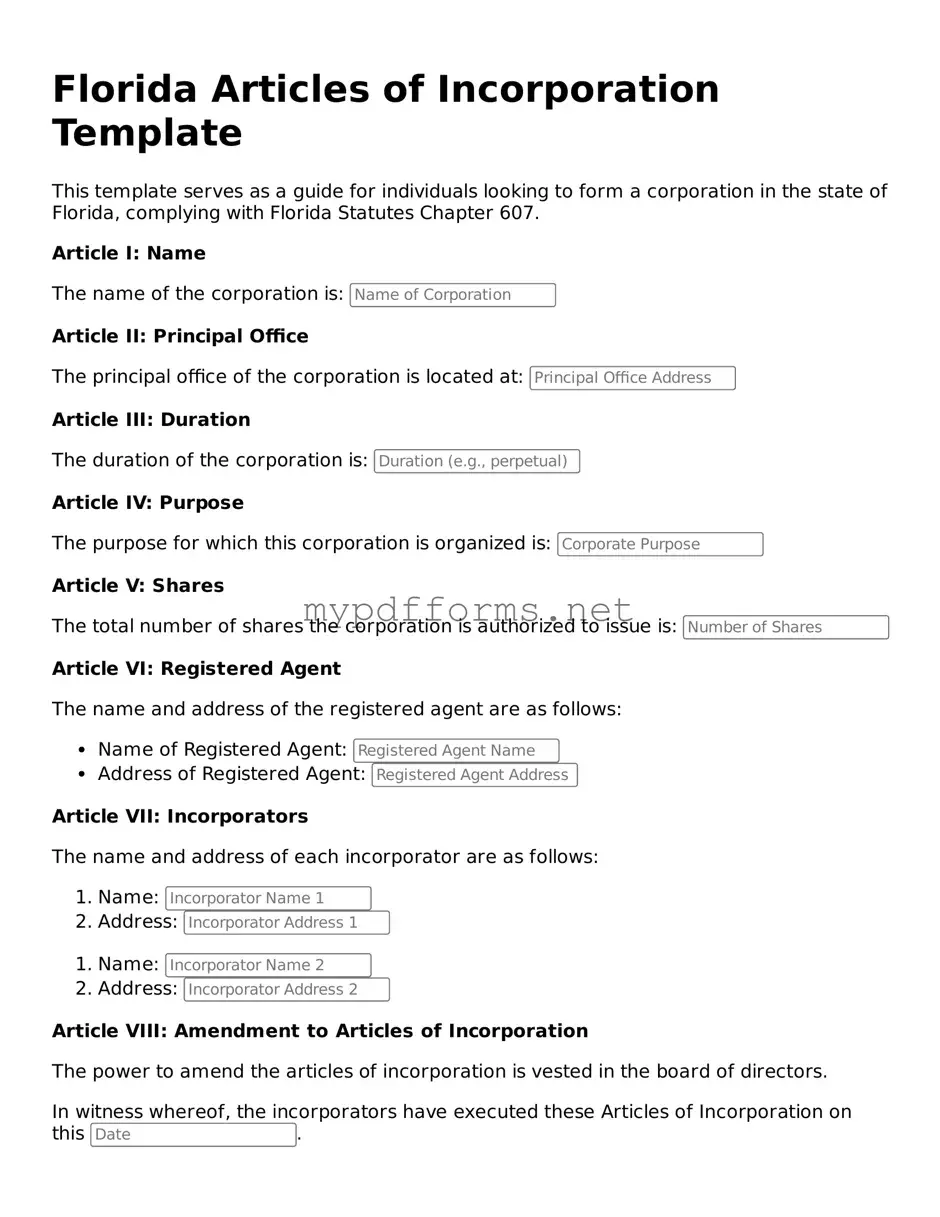The Florida Articles of Incorporation form is similar to the Certificate of Incorporation used in other states. Both documents serve the primary purpose of officially establishing a corporation. They provide essential information such as the corporation's name, purpose, and the details of its registered agent. Like the Florida version, the Certificate of Incorporation must be filed with the appropriate state authority, often accompanied by a filing fee. This process marks the formal beginning of a corporation's legal existence.
Another document that shares similarities is the Bylaws of a corporation. While the Articles of Incorporation outline the basic structure and purpose of the corporation, the Bylaws provide the internal rules governing its operations. These rules cover important aspects such as the roles of officers, the process for holding meetings, and how decisions are made. Together, these documents create a comprehensive framework for the corporation's governance.
The Limited Liability Company (LLC) Articles of Organization is another comparable document. Like the Articles of Incorporation, this form is filed with the state to officially create a business entity. It includes basic information about the LLC, such as its name and the address of its registered agent. Both documents establish a separate legal entity, protecting the owners from personal liability for the company's debts and obligations.
The Partnership Agreement is also relevant when comparing business formation documents. While the Articles of Incorporation focus on corporations, the Partnership Agreement outlines the terms and conditions of a partnership. This document details the roles and responsibilities of each partner, profit-sharing arrangements, and procedures for resolving disputes. Both documents serve to formalize the structure and operations of a business, albeit in different contexts.
Understanding the various foundational documents for business formation is essential for any entrepreneur. For limited liability companies (LLCs) in Illinois, having an operating agreement is particularly important, as it provides a detailed outline of management structures and procedures. This agreement not only clarifies the roles and responsibilities of members but also helps to mitigate conflicts. To properly establish your LLC and ensure compliance with state laws, consider utilizing resources such as Illinois Forms to create your Operating Agreement with ease.
The Statement of Information is similar in purpose to the Articles of Incorporation but is typically required for corporations in certain states after they have been formed. This document provides updated information about the corporation, such as its address, officers, and business activities. It ensures that the state has current information on the corporation, similar to how the Articles of Incorporation initially set forth the foundational details.
Lastly, the Certificate of Good Standing is akin to the Articles of Incorporation in that it verifies a corporation's legal status. While the Articles establish the corporation, the Certificate of Good Standing confirms that the corporation is compliant with state regulations and has fulfilled its filing obligations. This document is often necessary for conducting business, securing financing, or entering contracts, showcasing the corporation's legitimacy and operational status.

